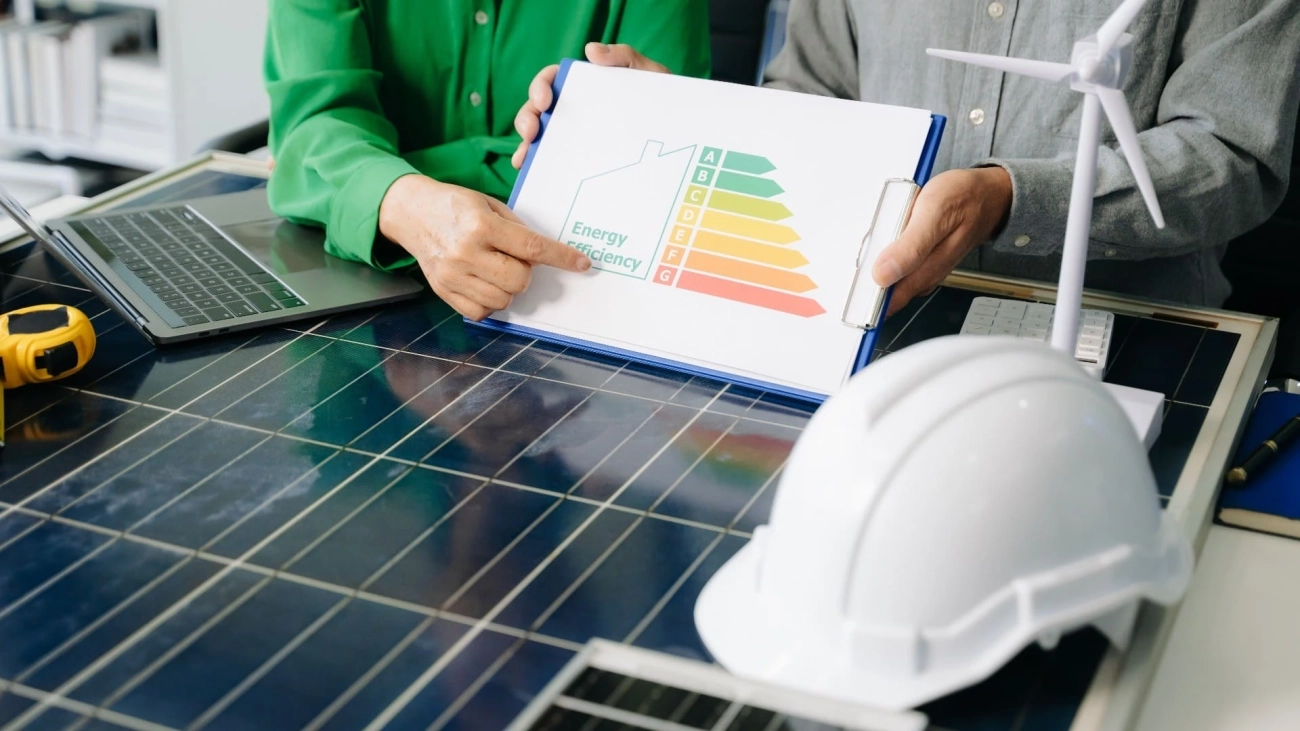Before renting an apartment, every tenant prioritizes a series of factors according to their interests. Location, services, and connectivity are usually at the top, especially when talking about temporary rentals. One aspect gaining increasing importance is whether the property has an energy certificate, as it directly affects comfort and sustainability. Let’s learn more about it.
Since the enforcement of Royal Decree 390/2021, this certificate is mandatory in Spain for renting any property. Its purpose is to transparently inform about the energy consumption of a home and promote more sustainable buildings. By 2025, amid the European energy transition, its importance will only grow.
What Is the Energy Efficiency Certificate and What Is It For?
The Energy Efficiency Certification (EEC) is an official document issued by a qualified technician that evaluates the energy performance of a property under normal usage conditions. This document assigns a rating from A (very efficient) to G (very inefficient), based on factors such as thermal insulation, orientation, heating and cooling systems, ventilation, and lighting.
In Spain, this certificate has been legally required since 2013, but regulations were updated in 2021 to align with European directives and the climate neutrality goals of the European Green Deal. Besides informing about estimated energy consumption, the certificate also suggests measures to improve efficiency.
If you are looking for an apartment to stay in temporarily for professional or leisure reasons, choosing options with an energy certificate is the best way to estimate consumption and assess the property’s environmental impact.
How to Interpret the Energy Rating of a Rental Property
The energy rating appears as a traffic-light style label, with letters from A to G and colors from green to red. This scale summarizes the property’s efficiency level, based on energy used for heating, cooling, ventilation, hot water production, and lighting.
- A (dark green): Highly efficient property. Low consumption and high thermal comfort.
- B and C (light green to yellow): Good energy performance. Moderate consumption and significant savings.
- D and E (yellow to orange): Medium energy consumption. Room for improvement.
- F and G (dark orange to red): Inefficient properties. Higher consumption, less comfort, and more emissions.
The certificate also includes information on annual CO₂ emissions, total consumption in kWh/m² per year, and a set of improvement recommendations. For a stay of several months, these data can be very useful, since a poor energy rating may mean additional costs for heating or cooling and reduced comfort for the tenant.
Should the Owner Show You the Certificate Before Renting?
Yes. The owner or managing company is legally required to show the energy certificate as soon as the property is offered on the market. This is established by Royal Decree 390/2021, and failure to comply may result in financial penalties.
For temporary or corporate rentals longer than four months per year, this certificate is also mandatory. Apartments must display the energy label and keep the certificate updated, as its validity is 10 years. Having this document signals professionalism and transparency, building trust with the client and adding value to the service offered.
How Does Energy Efficiency Affect Your Electricity and Gas Bills?
The level of energy efficiency directly impacts your monthly bills. The more efficient the property, the lower the energy needed to maintain a comfortable temperature and use appliances.
Rough estimates are:
- A property rated A can save up to 80-90% in energy consumption compared to a G rated one.
- Efficient systems (like LED lighting, double-glazed windows, or A+++ rated appliances) help reduce costs without sacrificing comfort.
This is especially relevant in accommodations that require constant connectivity, prolonged heating or cooling, daily use of appliances, and in some cases, remote work. Good energy efficiency translates into:
- Savings for the company or end customer.
- Greater thermal and acoustic comfort.
- Better property sustainability and alignment with CSR or ESG policies.
Tips to Choose a Property with Good Energy Efficiency
When renting a temporary or corporate property, considering energy efficiency leads to a better experience. Here are some practical tips:
- Request the energy certificate.
- Choose properties rated A, B, or C, especially if the stay will be long or if you need to work from home.
- Check insulation: walls, ceilings, and windows. The building orientation also matters (south or southeast is better).
- Evaluate heating and cooling systems: heat pumps or condensing boilers are more efficient.
Review lighting and appliances: it’s advisable they are low-consumption and have high-efficiency labels.
Book Now on BizTrip

